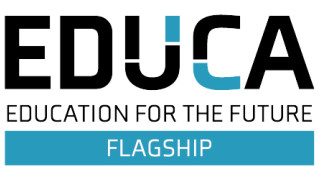Biography
I work as a doctoral researcher at the University of Jyväskylä in the Finnish Institute for Educational Research and the Faculty of Education and Psychology; I am work in the educational policy wing of the EDUCA flagship research project. I graduated with a master’s degree from the University of Jyväskylä’s Educational Sciences international master’s program in 2023, with a specialization in educational leadership.
I research educational crisis leadership, typically in the higher education context, as well as university staff well-being. I am also interested in simple language (Finnish: “selkokieli”), especially whether simple language has a place in academia and higher education governance. I also work to support ecological sustainability and slow academia, exploring how higher education organizations can become more ecologically and socially sustainable.
I currently live in Jyväskylä with my wife and cat. Before moving to Finland, I worked for 20 years as a biology professor / educator at United States community colleges, both in California and Arizona. I have a master’s degree in biology from Arizona State University (Arizona, USA) and a bachelor’s degree in biology from Harvey Mudd College (California, USA).
Research interests
My recent research has focused on case studies of crisis leadership in Finnish higher education. Crises come in many forms: they vary in cause, scale (size), onset speed, duration, and impact. How can higher education staff and leaders prepare for crises and lead during crises, when crises are so different? The people affected by higher education crises (staff, students, and the community around the organization) are extremely diverse, and thus a major question in my research is how higher education staff and leaders can act before, during, and after crises so that all those in the educational community can get what they need, want, and hope for.
I use both qualitative and quantitative methodologies. When I was a biology researcher I used exclusively quantitative methods. After switching to educational sciences research, I now primarily use qualitative methods, as interviews, panel discussions, and even casual discussions allow us to dive deeper and explore the hidden structures, processes, and beliefs underpinning leadership. When topics become difficult, I like to use artistic qualitative methods, such as asking participants to take pictures, draw, or write; as through art we can more easily explore sensitive topics.
I have also researched university staff (employee) well-being, and in this research I have used exclusively artistic qualitative techniques.
Find more information about me and my work at ORCID: https://orcid.org/0009-0000-9738-6840.





